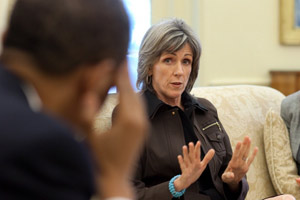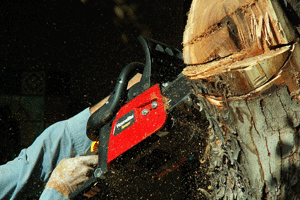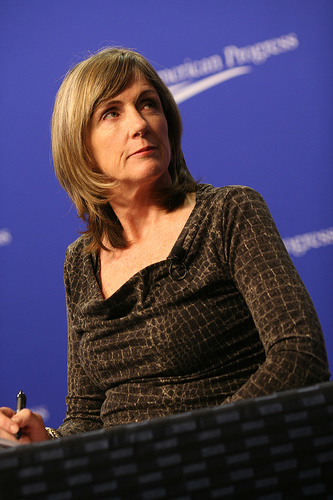The White House Office of Energy and Climate Change Policy is no more. Carol Browner, who served as the special adviser to President Obama on the subject, has officially departed a little more than a month after announcing her resignation. And on Wednesday, the White House announced that the climate and energy work would move under the umbrella of the Domestic Policy Council.
Melody Barnes, the director of the Domestic Policy Council, will officially oversee Browner’s former team.
Heather Zichal, who served as Browner’s deputy in the climate office, will continue as deputy assistant to the president and take the lead on climate and energy policy work. Zichal was Obama’s top campaign adviser on climate and energy and has a background of working as an adviser to key congressional leaders on this issue, including Sen. John Kerry (D-Mass.).
All this news answers the lingering question about what would happen after Browner’s departure. It’s not really a huge shift. Including the climate office in the larger domestic portfolio makes substantive sense—particularly when a comprehensive climate and energy bill isn’t going to happen in the next two years, anyway. Republicans maligned Browner as an unappointed “czar” and attempted to defund her position. Merging the climate office into the DPC should shield Zichal and the rest of the climate policy team from some of that type of criticism.
What really matters is the degree to which climate issues remain a priority for the administration. It doesn’t necessarily require a separate office to make that happen—and overcoming the Senate’s reluctance to address the issue proved impossible even when the climate folks had their own turf. Verdict: not great news for climate hawks, but far from the end of the world.












